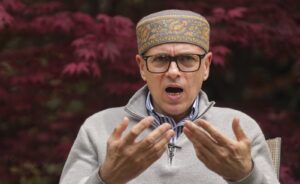After a decade-long absence, Omar Abdullah has returned to the Chief Minister’s chair of Jammu and Kashmir, inheriting a complex political landscape that he has described as a “crown of thorns.” This metaphor, voiced by his father, Dr. Farooq Abdullah, encapsulates the challenges that come with leading a region still grappling with the ramifications of the abrogation of Article 370 in 2019.
Omar took office on October 16, 2024, following elections held between September and October. His swearing-in ceremony was attended by notable political figures, including Rahul Gandhi and Akhilesh Yadav. In his first address, Omar pledged to prioritize the restoration of statehood for J&K, reflecting widespread public sentiment on the matter. He noted that the new assembly would swiftly pass a resolution demanding this restoration, although critics argue that the Cabinet’s actions have not adequately represented the diverse political opinions of the region.
Also Read: Akali Dal at Crossroads: Can Sukhbir Badal Survive the Revolt?
One of the most significant aspects of his return is the appointment of Surender Choudhary, a Hindu leader from Jammu, as his deputy. This move is seen as an attempt to ensure that Jammu feels included in the governance process, addressing fears of regional isolation. Omar emphasized his commitment to represent all communities in Jammu and Kashmir, aiming to bridge the historical divides that have characterized the region’s politics.

While he appears optimistic about his leadership role, the obstacles are formidable. Omar’s government operates under the constraints of a Union Territory, which diminishes its authority compared to a full-fledged state. Experts warn that navigating these limitations will be crucial as the government aims to foster healing and stability in a region long marred by conflict.
Reactions to his leadership have been mixed. Former Chief Minister Mehbooba Mufti expressed hopes for healing the wounds inflicted on the people of J&K but cautioned that merely demanding statehood without restoring Article 370 is insufficient. Political analysts suggest that Omar must balance the aspirations of his constituents with the realities imposed by the central government, a challenge that could define his tenure.
As Abdullah steps into this role, he carries not only the expectations of his family legacy but also the hopes of a populace yearning for stability and progress in a historically turbulent region.

